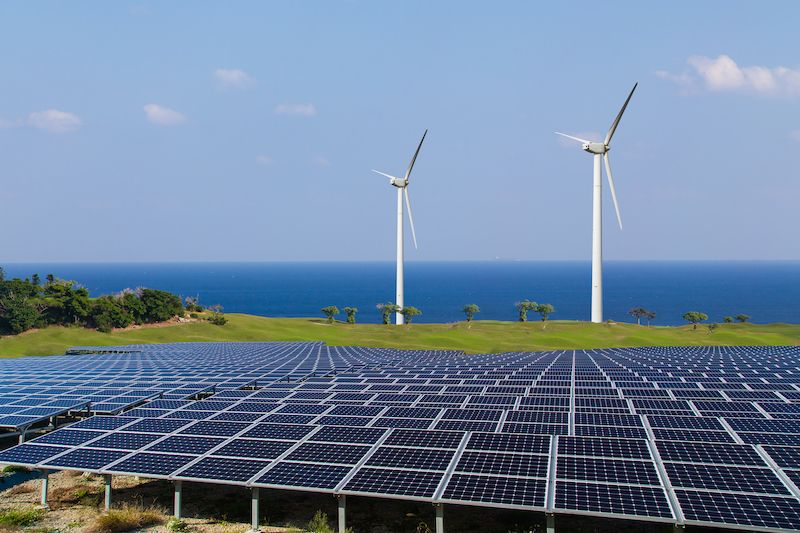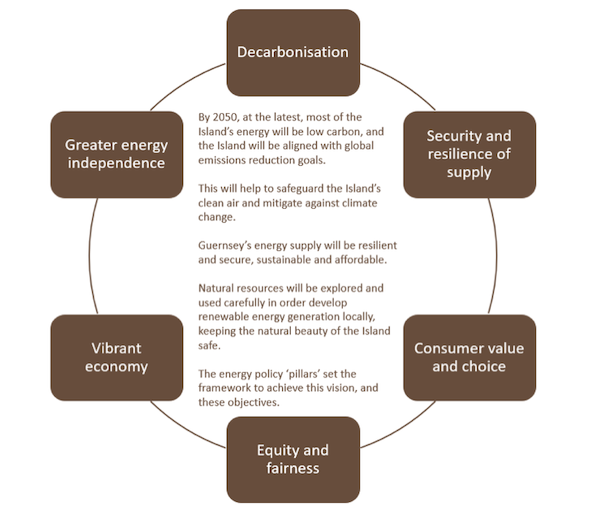


E&I will start exploring how to generate renewable energy locally, if it is given the go ahead by the States.
It's part of the Energy Policy, which asks the island to commit to having net zero emissions by 2050 at the latest.
The policy sets out four main 'pillars' which it hopes to address:

Pictured: A diagram explaining E&I's Energy Policy.
If agreed, one of the main investments will be a second electricity cable linking the island to the European grid. It's thought this could lessen the need to keep many diesel generators running, as well as reducing the reliance on hydrocarbon fuels. It would also give Guernsey the opportunity to export locally-generated renewable energy to the European grid.
Guernsey Electricity has been tasked with putting together a businesses case for the second interconnected, which will be delivered to the States later this year.
"There is firm scientific evidence to show that the climate is changing because of greenhouse gas emissions resulting from human activity," said Environment & Infrastructure President, Deputy Barry Brehaut. "The build of those emissions derive from our demand for energy. The largest contributor is carbon dioxide, emitted when fossil fuels are burnt to meet those demands.
"With the world moving away from hydrocarbons, most of Guernsey's energy supplies will need to come from clean, low-carbon sources, with residual emissions offset. We will need to use energy wisely, so as not to waste precious resources.

Pictured: Deputy Barry Brehaut.
"Conscientious use of on-island natural resources will safeguard our healthy environment and clean air, whilst protecting Guernsey's unique surroundings, biodiversity and natural beauty. The Energy Policy supports the generation of on-island renewable, clean, affordable energy and will provide value and choice for everybody. It will help Guernsey play its part in mitigating climate change."
At the moment, our renewable energy is generated in France and is imported through a subsea cable via Jersey.
"The Energy Policy seeks to ensure Guernsey's energy supply will be resilient and secure as well as sustainable, in order to meet reasonable demands," Deputy Brehaut continued. "Guernsey will be aligned with global efforts to reduce emissions and the development of renewable technologies.
"The 2018 Budget Report indicated that the development of the Energy Policy would include a consideration for related taxes. However, the committee believes that the policy may be introduced without energy related taxes."
More information on the policy is available here.
Comments
Comments on this story express the views of the commentator only, not Bailiwick Publishing. We are unable to guarantee the accuracy of any of those comments.